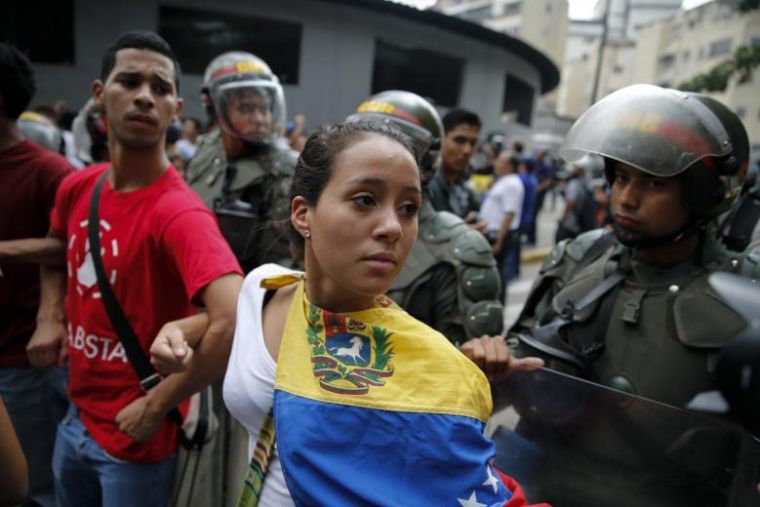Christian Today explainer: What's happening in Venezuela?

Venezuela is suddenly headline news. Why is that?
The situation in Venezuela has been getting steadily worse for some time. It has hit the headlines this week while the rest of the world's news agenda has slowed down somewhat. Earlier this week there was an election for the 'Constituent Assembly'. The opposition claimed it was a tactic by the Maduro government, designed to increase his power. That led to a boycott by some opposition supporters.
Who is President Maduro?
Maduro took charge in 2013 following the death of long-time president Hugo Chavez. A former bus driver and trade unionist, Maduro was one of Chavez's right hand men, as well as being the foreign minister.
So who was Chavez?
Hugo Chavez was one of the most popular and prominent politicians in Latin American history. Coming to power on a wave of popular support in 1999, he began a series of radical reforms to the country which used its oil-funded reserves to redistribute wealth. Chavez's personal popularity and socialist policies ensured his re-election three times. He survived a coup attempt in 2002. During his fourth term, in 2013, he died after suffering from cancer. He was replaced by Maduro.
What has caused the current crisis?
Since Chavez sought to redistribute power from private corporations to the state, he made powerful enemies. They opposed his regime and have continued to attack his successor. In the past few years as oil prices have fallen and the economic outlook has worsened for Venezuela, protests have become commonplace. Food is in short supply in places and medication has run low.
Supporters of the Maduro administration claim the protests are being stirred up by outside interference. Critics suggest that Maduro's support has fallen as low as 20 per cent and those on the streets are genuinely seeking change to a government that has failed them.
What has the Church had to say?
Around 70 per cent of Venezuelans are Catholics, with other Christians making up another 17 per cent. As in other Latin American counties, the Catholic Church's stance is watched carefully. Earlier this year, Reuters reported that the Church was facing a backlash for critcising Maduro's government. 'After numerous frays with Chavez during his 1999-2013 rule', it said, 'the Church has once again taken its gloves off, with a series of highly critical speeches and proclamations since late last year.'
Meanwhile, the head of the Venezuelan Episcopal Conference, Diego Padrón, said the reforms proposed by Maduro to the constitution would turn the country into a 'military dictatorship'. 'This assembly will be imposed by force and its result will be that constitutional status will be given to a military, socialist, Marxist and communist dictatorship," said Monsignor Padrón.
Where now?
The next presidential election is due to take place in December 2018. Before then, the protests on the streets of Caracas and elsewhere look set to continue. The BBC outlines the four demands of the opposition. These are: Removal from office of some Supreme Court justices, general elections in 2017, creation of a 'humanitarian channel' to allow medication to be imported to counter severe shortages and the release of all the 'political prisoners'. Given president Maduro seems unlikely to bow to these demands, the pressure on him may also come from outside. The US has imposed personal sanctions on Maduro and threatened sanctions on the country, but that is likely to hit those already struggling.











